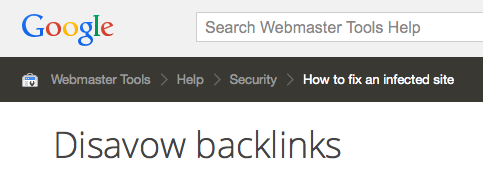Google has thrown a lot of changes into the SERPS that, should they work as intended, could be a game changer for a lot of websites. However, even though you may do everything Google says in exactly the way they advise you to do it there is no guarantee that those SEO benefits will actually work in your favor. Here are four SEO benefits Google offers but you can’t force them to give you:
1. Adding sitelinks to the SERPs.
Sitelinks are meant to help users navigate your site directly from the SERPs. For an SEO benefit, this gives your site more links in the SERPs, driving visitors deeper into your site. At the moment Sitelinkshowever, sitelinks are automated which means we as site owners can’t control what Google pulls in to the SERPs, if they pull anything at all. What you can do is tell Google which links you DON’T want incorporated as sitelinks and suggest they be removed them from the possible options Google has to work with. But even then Google only takes it as a suggestion.
2. Having your Google+ profile appear on the right hand side.
You may have noticed that when you search for a particular brand or person their Google+ profile shows up on the right hand side of the SERPs (do a quick search for “Rand Fishkin” to see what I mean). Giving your company so much extra space in the SERPs is great for branding purposes, even if it’s not a direct SEO benefit, but you have to push a little to get Google to give you that space; they don’t just automatically create it even if you do have a Google+ profile. To have a business page appear on the right hand side of Google’s search results you will need to have a Google+ verified business page, which is symbolized by that small “v” next to the business name. In order to verify your business page you will need to use this form.
3. Creating rich snippets for your content using the rel=“author” tag.
As author authority becomes more and more important for SEO, site owners would be wise to implement the rel=“author” tag which links their Google+ profile with their blog and any other content they create online. This new rich snippet gives the author’s name, the author’s picture as it appears on Google+, how many Google+ followers the author has and links to more articles. Even though there has been no direct correlation between rich snippets and ranking improvements, several studies have shown that rich snippets do increase CTR substantially. This kind of SEO benefit has too much potential to be ignored, especially with how the search engines are changing the rules of link building and social authority.
However, just because you add the rel=“author” tag that doesn’t mean it will show up overnight. Brick Marketing’s President Nick Stamoulis added it months ago and we still haven’t seen any changes, even though the structured data testing tool says everything is working fine. Guess that means we sit and wait some more!
4. Instantly discrediting links you submit through the link disavow tool.
Here’s what Google has to say about the disavow tool,
It may take some time for Google to process the information you’ve uploaded. In particular, this information will be incorporated into our index as we recrawl the web and reprocess the pages that we see, which can take a number of weeks.
The search giant strongly cautions site owners against using the disavow tool except as a last resort so they don’t accidentally damage their SEO program and link profile. But even if you only wanted Google to disavow those last 10 crummy links there is no guarantee as to when that will happen. It could be days or weeks before the changes are taken into effect, and even then it might have such a negligible impact on your website you don’t see any change for better or worse.
If you want to hear what I have to say in 140 characters or less, please follow me on Twitter at http://twitter.com/erikpenn.
